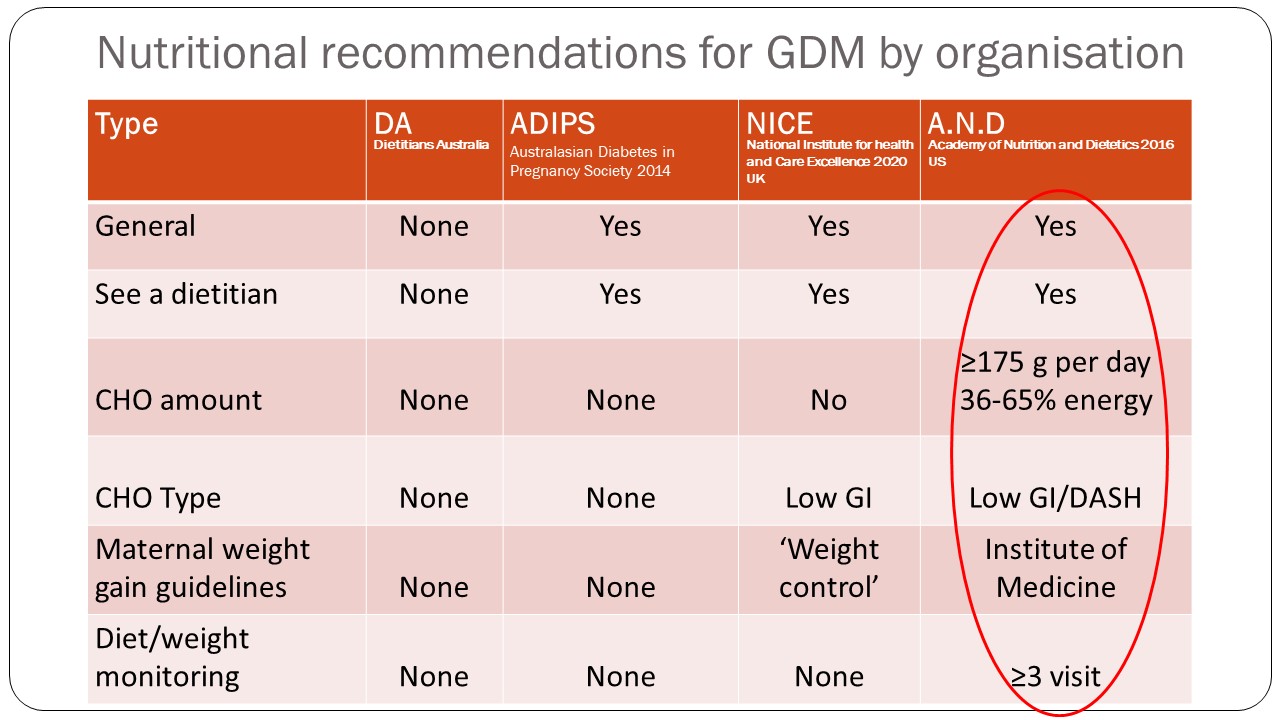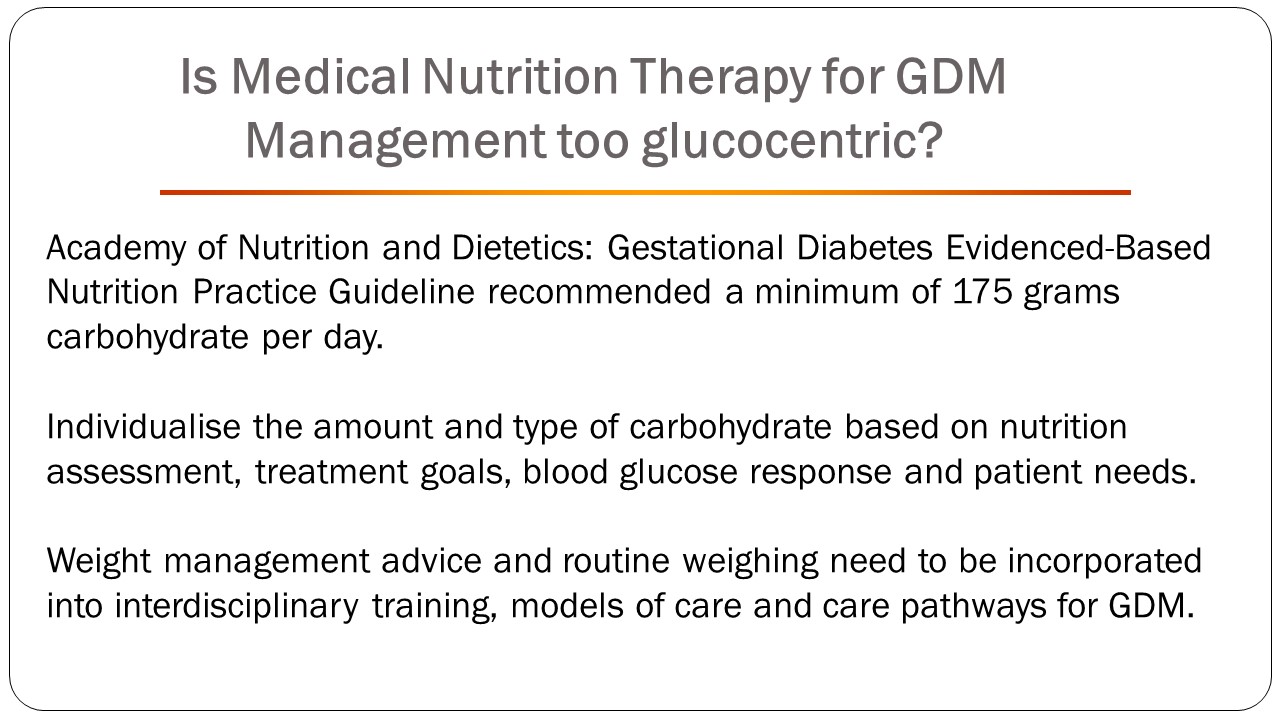Weight management and carbohydrate recommendations in GDM by Dr Robyn Barnes, PhD, APD, CDE
 Anthea Talliopoulos, APD
Anthea Talliopoulos, APD
Gestational diabetes mellitus (GDM) affects 1 in 6 women in Australia, being associated with a significant number of adverse maternal and neonatal outcomes, such as preeclampsia, clinical neonatal hypoglycaemia and larger birth weight. GDM is diagnosed by a 75g oral glucose tolerance test (OGTT) conducted between 24-28 weeks, unless screening is warranted earlier. When the diagnostic criteria for GDM are considered, primary clinical guidelines such as the Australasian Diabetes in Pregnancy Society (ADIPS), The Royal Australian and New Zealand College of Obstetricians and Gynacologists (RANZCOG), and the Royal Australian College of General Practitioners (RACGP) are commonly referred to in practice.
Medical nutrition therapy has a role in managing gestational diabetes, with the main goals being to meet the nutritional requirements of pregnancy, achieve glycaemic targets, and reduce the risk of adverse maternal and neonatal outcomes. The Academy of Nutrition and Dietetics in the US ‘Gestational Diabetes Evidenced Based nutrition practice guideline’ is commonly referred to, recommending low glycaemic index carbohydrates or the DASH Diet, with a total carbohydrate consumption of 175g or more per day (or 36-65% of estimated energy requirements). Routine weight monitoring is also recommended and should be encouraged throughout pregnancy.
In considering the low carbohydrate diet, Dr Robyn Barnes explains that there is no current evidence to suggest that this diet is effective in reducing adverse health outcomes than a higher carbohydrate diet. Rather, focusing on the amount and distribution of carbohydrates overall, without compromising on nutritional intake is recommended. Caution should also be taken before recommending a ketone diet, as ketones may impair foetal and postnatal neural development.
Overall, working alongside a multidisciplinary team, optimising nutritional adequacy and dietary variety, while also recommending weight monitoring during pregnancy can help to ensure that the risks associated with gestational diabetes are minimised, and that maternal and infant health are prioritised.
Summary:
- Gestational diabetes mellitus (GDM) effects 1 in 6 women in Australia, being associated with a significant number of adverse maternal and neonatal outcomes, such as preeclampsia, clinical neonatal hypoglycaemia and larger birth weight.
- Primary clinical guidelines used in practice include the Australasian Diabetes in Pregnancy Society (ADIPS), The Royal Australian and New Zealand College of Obstetricians and Gynacologists (RANZCOG), and the Royal Australian College of General Practitioners (RACGP).
- Caution should also be taken before recommending a ketone diet, as ketones may impair foetal and postnatal neural development.
- Low glycaemic index carbohydrates or the DASH Diet is recommended, with a total carbohydrate consumption of 175g or more per day (or 36-65% of estimated energy requirements). Routine weight monitoring is also recommended and should be encouraged throughout pregnancy to reduce the risk of adverse health outcomes for both the mother and the developing baby.
Dr Robyn Barnes is an Accredited Practising Dietitian and Credentialled Diabetes Educator. She has worked as a dietitian for the past 25 years, specialising in diabetes for the past 18 years. Robyn has extensive experience in providing dietary advice to patients with type 1, type 2 and gestational diabetes mellitus. Her area of research interest is dietary management of gestational diabetes mellitus, particularly weight management during pregnancy. In collaboration with colleagues, and her academic supervisors she has published multiple papers in this area. She is the NSW convenor of the Diabetes Special Interest Group, and the Diabetes Coordinator for South Western Sydney Local Health District, and is a Senior Diabetes Dietitian at Bankstown-Lidcombe Hospital Diabetes Centre.
To register for the presentation and associated documents including the assessment quiz click here

